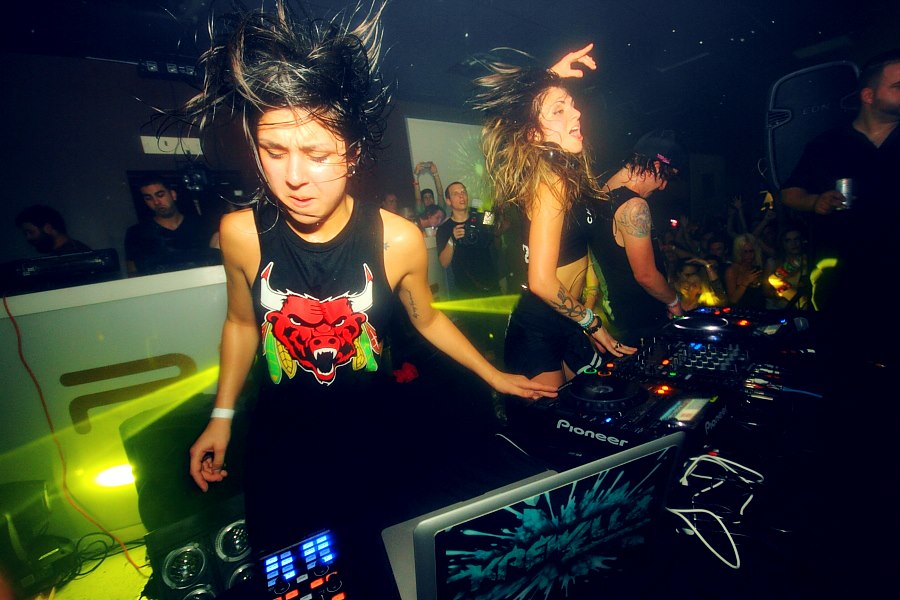(Photo: Blaise Joseph Photography)
In lieu of Spinnin’ Records‘ recent faux pas on twitter where the label complimented a fake Pioneer CDJ player that resembled a stove top as the latest and greatest device suitable for female DJs, publications around the world are taking the time to re-evaluate and assess the role of women in EDM and the inherent obstacles they face. In particular, the Huffington Post presented a particularly interesting article shadowing Yasmine and Jahan Yousaf, two of the three members of Krewella, and several other female DJs to uncover the barriers and stigmas women must overcome in the field of professional Djing.
Male DJs tend to headline at music festivals and top dance music charts compiled by Billboard, U.K.-based DJ Mag or the more dance music-conscious Resident Advisor. An analysis published by Female Pressure, an international collective of female artists, illustrated the disproportionate showing in its March report: In the past year, 10 percent of performers at music festivals around the world were female, and women comprised only 9.3 percent of artists listed on music label rosters.
This apparent disparity between genders in EDM has yet to formally bar female DJs from rising to the forefront of the industry and showcasing their musical talents but there is no denying that electronic music, like many industries, is not devoid of stereotypes.
While technology is not an inherently masculine concept — and, if anything, has become more gender-neutral in recent years — stereotypes surrounding who is best-suited for technical work persist. In EDM, the assumption that women lack the technical capabilities to successfully produce music still endures.
From our perceptions of technology, to perceived misconceptions judging an individuals’ aptitude to produce, the article prefaces relevant misconceptions that if not addressed will undoubtedly hinder the growth of the community and industry as a whole. For a deeper look into this issue, read the article in full here.










This article is horrific.. Short, just stating numbers and very little more.. If you are going to publish something, please take the time to do your homework, then write a proper article.. this is shameful…
You’re link doesn’t work :/
This photo is from my night in Jacksonville :))) <33 mad luvvvv
Annie Mac headlined Global 🙂
But I thought Rain Man does most of the producing, wouldn’t say The Jane Doze be a better example?
lol this is awesome guys. Love your articles, thanks for using the pic and posting cred.
Kristina sky is one of the female DJs that has been in the game a while. she regularly headlines at events, which is dope. I think that women are starting to gain more traction in edm